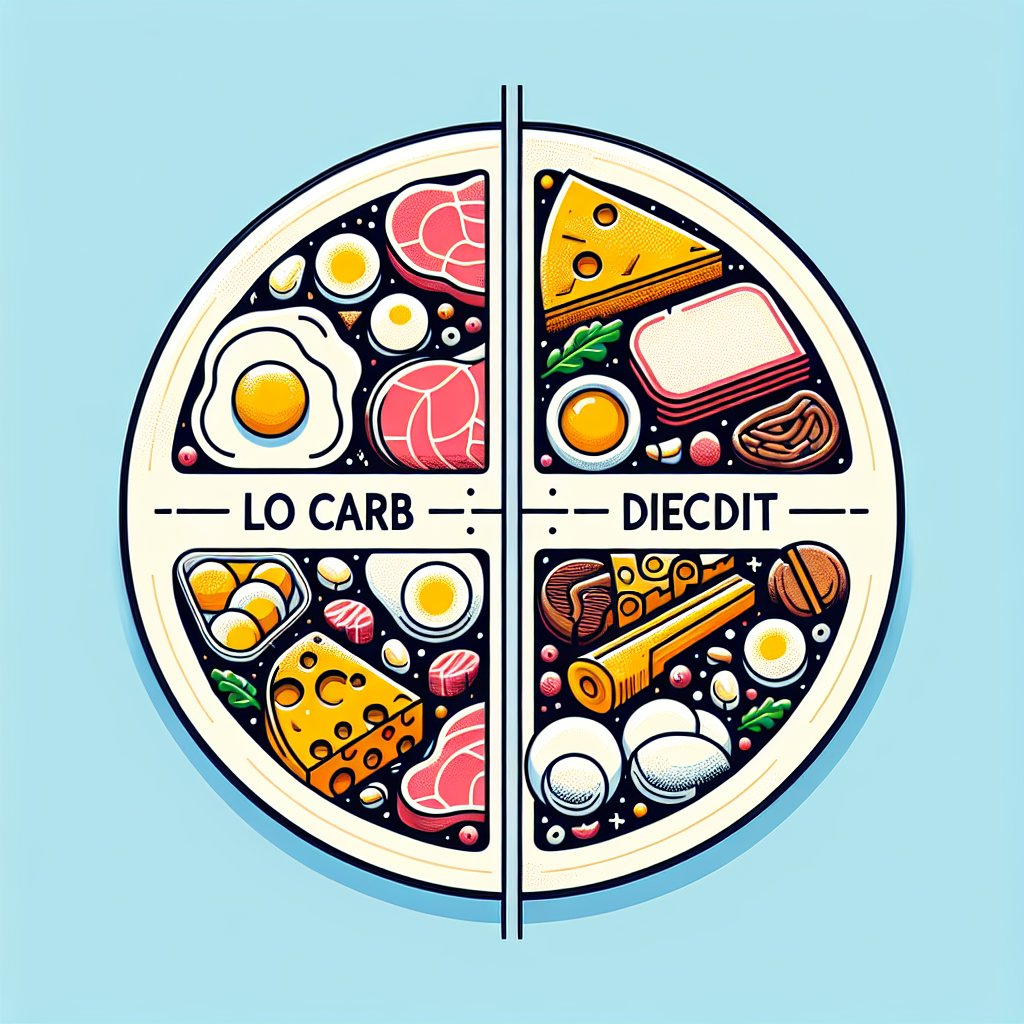Understanding Low Carb Diets
Low carbohydrate diets emphasize reduced carbohydrate intake, typically replacing it with proteins and fats. Popular variations include the ketogenic diet, Atkins, and paleo. By reducing carbohydrates, the body shifts towards burning fat as a primary energy source, leading to a state known as ketosis.
Benefits of Low Carb Diets
-
Weight Loss: Many individuals experience rapid weight loss on low carb diets due to reduced insulin levels, which aids fat breakdown. Lower carb intake may also lead to decreased hunger and cravings, promoting a caloric deficit.
-
Blood Sugar Control: Low carb diets can significantly help in managing insulin sensitivity and blood sugar levels, making them beneficial for individuals with type 2 diabetes.
-
Improved Triglycerides and HDL Levels: Studies indicate that low carb diets often result in lowered triglyceride levels and increased high-density lipoproteins (HDL), which protect against heart disease.
-
Mental Focus: Some followers report enhanced mental clarity and focus, especially as the body enters ketosis—a state where the brain uses ketones for fuel.
Exploring Caloric Deficit
A caloric deficit occurs when energy expenditure exceeds energy intake. This concept is fundamental to weight loss, regardless of the macronutrient composition of the diet.
Benefits of a Caloric Deficit
-
Flexible Eating: Unlike low carb diets, a caloric deficit approach allows greater flexibility in food choices. As long as total calorie intake remains below expenditure, users can manage their dietary preferences without strict restrictions.
-
Simplified Tracking: Individuals may find tracking calories more straightforward than tracking macronutrients, making it easier to adjust intake to achieve weight loss.
-
Sustainable Habits: Developing a lifestyle centered around a caloric deficit can encourage sustainable, long-term weight management. By focusing on portion control and activity levels without severe dietary restrictions, individuals may find it easier to maintain weight loss.
Comparing Effectiveness: Low Carb vs. Caloric Deficit
Weight Loss
Research shows that both low carb diets and caloric deficits lead to weight loss. A meta-analysis indicated that low carb diets may produce slightly more weight loss than low-fat diets in the short term. However, the long-term outlook reveals minimal difference between macronutrient-focused diets versus those simply adhering to a caloric deficit.
Satiety
Low carb diets are often associated with higher protein and fat intake. Both proteins and fats facilitate increased feelings of fullness compared to carbohydrates, which can lead to spontaneous reductions in caloric intake. Consequently, individuals on low carb diets may adhere to a caloric deficit more easily due to reduced hunger.
Metabolic Advantages
Low carb diets can instigate metabolic advantages due to lower insulin and higher glucagon levels, promoting fat oxidation. However, the effects of caloric deficits are primarily dependent on overall caloric intake and not necessarily impacted by macronutrient distribution.
Psychological Factors in Weight Loss
Adherence and Compliance
Psychological aspects play a crucial role in weight management. Many individuals may thrive on the rigidity and structure offered by low carb diets, while others may struggle with the restrictions and may find caloric deficit approaches more sustainable and enjoyable.
Long-Term Success
The ultimate measure of a diet’s success lies in long-term sustainability. Low carb enthusiasts may feel invigorated by the diet’s initial results, while those relying on caloric deficits may enjoy a more balanced lifestyle that includes occasional indulgences without guilt.
Nutrient Density
Regardless of dietary approach, the emphasis on nutrient-dense foods is vital. Choosing whole foods over processed options enhances overall health, providing essential vitamins and minerals. Vegetables, lean proteins, healthy fats, and high-quality carbohydrates should play key roles in both low carb and caloric deficit diets.
Potential Drawbacks
Low Carb Diet
While low carb diets can be effective, potential drawbacks include nutrient deficiencies if fruits, vegetables, and whole grains are excessively limited. Long-term adherence may also be challenging due to social situations and food environment stresses.
Caloric Deficit
On the other hand, some individuals may inadvertently ignore the quality of their food while focusing only on calorie quantity. This can lead to a poor nutritional profile and stagnated results over time.
Practical Tips for Choosing a Dietary Approach
-
Assess Your Lifestyle: Evaluate your day-to-day habits, preferences, and social life. Choose a dietary approach that fits naturally into your routine.
-
Track Your Progress: Regardless of which method you choose, tracking your food intake can promote awareness and accountability.
-
Focus on Quality: Prioritize whole, unprocessed foods regardless of the dietary path. Both strategies will benefit from a focus on well-rounded nutrition.
-
Consult a Professional: For those uncertain about their dietary choices, consulting a registered dietitian or a healthcare provider can offer personalized guidance based on individual health needs.
-
Experiment: Consider trying both approaches. You may find that combining elements of both works best for your body and lifestyle.
-
Stay Hydrated: Regardless of diet, proper hydration supports metabolism and overall health, enhancing both appetite control and nutrient absorption.
-
Listen to Your Body: Pay keen attention to your hunger cues and energy levels. This self-awareness can guide your dietary choices more effectively than strict rules.
In summarization of the ongoing debate between low carb diets and caloric deficit strategies, both offer viable paths to weight loss and improved health. The better approach will depend on individual preferences, lifestyle factors, and long-term goals. Focus on what you can maintain sustainably while nurturing your body with nourishing foods and balanced eating patterns.
